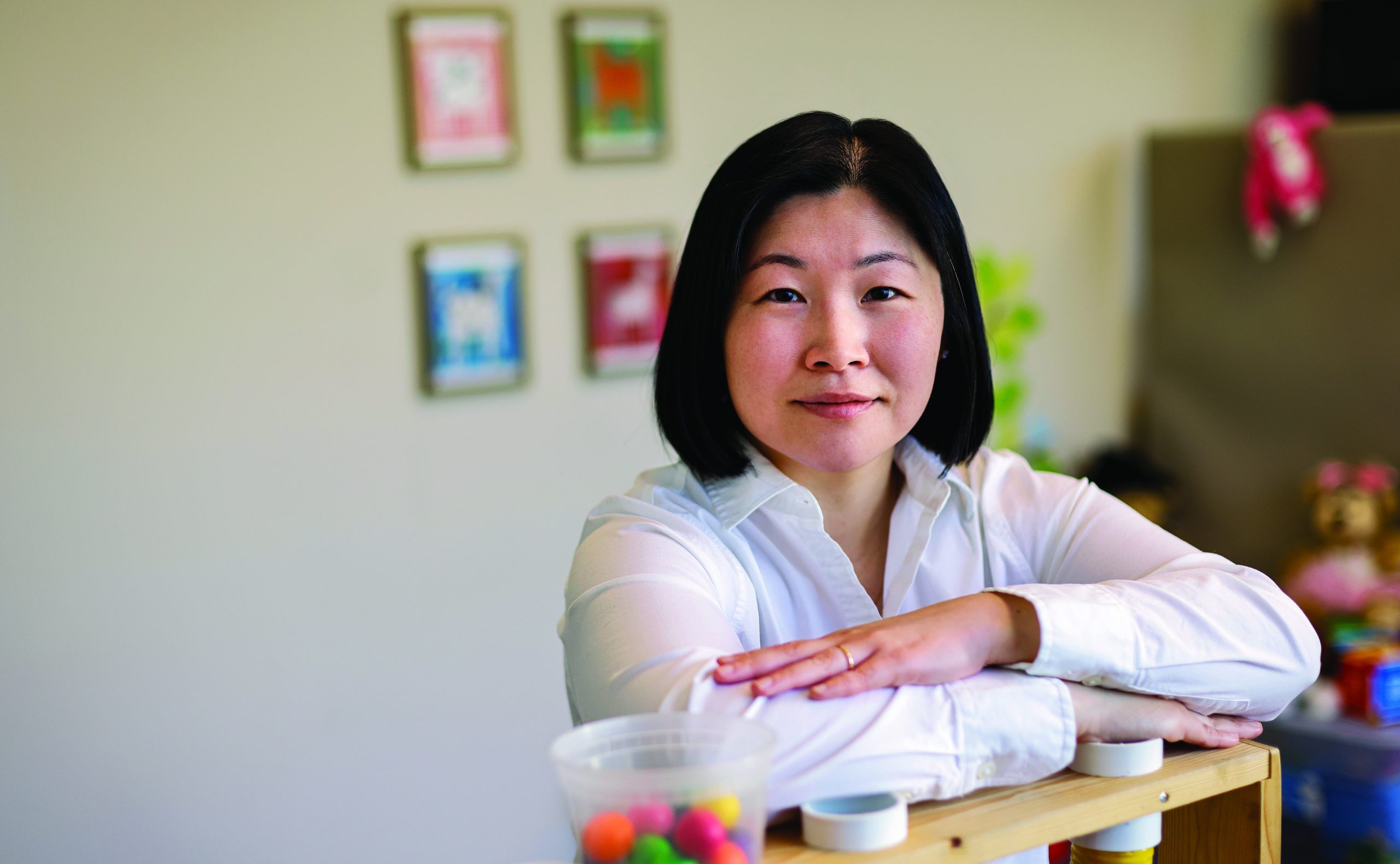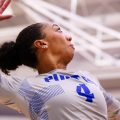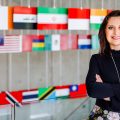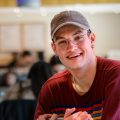By Jen A. Miller
Amy Joh wants to know how our brains grow. As an associate professor of psychology and director of Seton Hall’s Child Learning Lab, Joh studies how young children develop cognitive and motor skills, and how they take information from the world around them and learn to do things that they later take for granted.
“I’m really interested in bringing together the why or how we go about the world and get that perceptual information we need to do the things we have to do every day,” she says. “Just getting up and brushing your teeth and walking down the street and finding your way to the office and typing on your computer are all things that need cognition.”
Understanding how those cognitive skills are built can allow parents and caregivers to help develop them in children at a young age.
Joh has a particular interest in how toddlers learn about spatial relationships.
In one study, she brings out three tubes and puts a marble at the top of one tube and asks a preschool-age child where the marble will end up. If the tubes are perpendicular to the ground, the toddlers will guess that the marble comes out of the bottom of the tube. But if the tubes are on a diagonal, the toddler will still guess that it flows straight down.
“They’ve spent three years watching most things fall straight down. They also know that things follow paths. They’re putting most things [together] but at 3 years of age, they still expect things to fall straight down,” she said.
Giving them hints before the exercise doesn’t help. Teaching kids a song about where the marble will roll doesn’t make a difference either.
What does work? Making each of the three tubes a different color. That helps children guess that the marble will roll to the end of the tube. The kicker, though, is that once the tubes are changed back to all being the same color, the same kids will guess the marble will roll straight down again.
“Studies like this can speak to how kids learn how to do things in everyday life, what input they seek and how much experience is needed,” Joh says. “What happens when they get information that’s contrary to how they think the world works?”
Shaziela Ishak, associate professor of psychology at Ramapo College, attended graduate school with Joh. She notes that “understanding the development of spatial abilities relates to so many different areas of development, such as tool use, problem solving, independent navigation, even eating.”
Ishak enrolled her child in one of Joh’s studies, knowing that it’s not always easy to recruit participants and because she knew her son “would enjoy the study because it is set up like a little game.”
The studies help in understanding cognitive development, she adds, because children this age may not be able to accurately express their abilities in a verbal way.
Seton Hall’s Child Learning Lab has been closed to children since the start of the COVID-19 pandemic, but that hasn’t stopped Joh’s research because she and Autumn Cataldo ’22 have been putting the studies online.
Posting the tube study online is the subject of Cataldo’s honors thesis. “We’re looking at the original study and asking, ‘How do we make this work in a reliable virtual way?,’” she says.
Not only do online options help researchers continue their work, but they also account for the way that today’s children have, for most of their lives, grown up.
“Parents are among the most important teachers for young children, so we want to see how learning occurs in a more natural, home environment,” Joh says. “A lot of these children have spent more time at home than they normally would in the last two years.”
Online versions of the studies also should show if the learning process has changed as a result of the shift in environment. Cataldo hopes to go on to become a school psychologist, specifically for elementary school children, and to also help students with learning disabilities. Working on this research not only will make her a better psychologist, she says, but will also “help us help children learn.”
Jen A. Miller is the author of Running: A Love Story.







